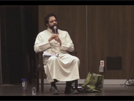Factors in the Spread of Materialism
- Details
- Hits: 4663
Chapter Three
Factors in the Spread of Materialism
--------------------------------------------------------------------------------
It is our contention that there is no call to study man's religious tendency. We hold that man has by nature a propensity for religion. Human nature, in the aspects of mind and spirit, has an innate attraction towards reverence for God and the Oneness. Materialism, on the other hand, is in contradiction to the innate tendency of human nature. Instead of wasting time and effort asking: "How did man develop a religious sense?", science should investigate how anyone ever came to develop a materialist tendency.
Materialists claim that their beliefs stem directly from the scientific and philosophical advances of the 18th and 19th centuries after Christ. They forget that every epoch from remotest antiquity has thrown up materialist views; in all classes, literate and illiterate, cultured and savage, wise and foolish. Today, in what boasts itself to be "the scientific age", some in all strata of society, learned and ordinary, hold metaphysical ideas, and are convinced of the existence of God. Were the materialist claims correct; we should find the more learned the more atheist. The facts are otherwise. Some of the greatest savants are the most godly of persons.
"Science has come! God is dead!" they cried. Simplistic! Unscientific! A baseless affirmation! It contains the half-truth that in our age unknown secrets of nature and facts about the universe have been brought to light. It also contains the false premise: "Faith in God was spawned by the marriage of ignorance with fear of the unknown."
In fact we find today that it is the enlightened men of faith who welcome the discoveries of facts about nature and increase their faith thereby. Wonder at the works of the Creator produces worship. The more you know of the complexities of creation and its functioning, the more profound your reverence for the Creator. Awareness of the marvels of the chain of causality increases your awe of the Prime Cause.
It was only yesterday that man expanded horizon of observation and measurement beyond himself. Hitherto mankind had no notion of the complexity of the works of creation around him. Today new discoveries follow one right after another; e. g. that 10 million milliard (10 ^15) cellules compose each physical human body. These discoveries reveal creation's splendour to a degree unimagined by any former age.
Must not the recognition of these causes, factors, events, and phenomena of nature lead inevitably to recognition of the Prime Cause whose Word started off the chain reaction of continuous creation?
Where is the logic in claiming that belief in God is confined to persons unaware of the processes of creation? Should the scientist, who is aware of the natural causes and of the factors determining each step of creation towards perfection, of mankind's evolution, of the minute accuracy and exactitude that rules every change in the nature that surrounds us, come to believe that these wondrous laws and amazing interactions have somehow fortuitously emerged out of mindless matter? Have his discoveries and insights merely brought him to a stage of thought which sees only blind concomitance and chance conjunctures in the exactly interacting phenomena?
Close study shows that the rise of materialism in Europe was due to certain historical facts. Among these must be counted mistakes made by the Church authorities.
(1) At the start of the Renaissance, Church authorities showed undue severity against partisans of the "new learning". This was because, alongside its purely religious doctrines, the Church had inherited from the philosophers of earlier ages, both Hellenic and non-Hellenic, various views about the world, and judged it as heretical to question these views as to deny religious tenets. But "new learning" exposed the falsity of previously held cosmogonic theories. Scientists who had discovered the facts, and expressed them in formulae which the Church declared heretical, in disgust turned against the Church, and discarded not merely the secondary views but also the Faith itself. To curb this mounting revolt the Church pressed harder. A desire for revenge rose in the hearts of the excommunicated. This illogical passion, seeking not to establish objective truth but simply to avenge, led the learned to "throw out the baby with the bathwater"; not merely the institutions which claimed to stand for God, but God as well. To seek revenge on a group of people with ecclesiastical claims is one thing. To revolt against religion in the true sense of the word is quite another. This dichotomy they failed to grasp. Yet it is obvious that revenge is not a rational or scientific reaction. Emotion has no place in intellectual pursuits.
(2) The Church used anthropological and materialist images in describing God, and employed them to teach children both in homes and in institutions. But as they grew up, young people realised in the course of study that such images were inept, unscientific, and false. Sadly, the Western Churches' misleading teachings thus used caused youth to deviate towards materialism. They failed to grasp that rational, truly objective concepts concerning the question of the existence of God could be found. Thus the Church gravely erred in its anthropological approach, to its own to humanity's grievous loss.
Walter Oscar Lundberg, physiologist and biochemist in America, writes: "There are numerous reasons why scientists are sceptical about God, and in particular (1) politics intervenes or sociology or nationalist considerations, by which the State or some institution claims priority over all loyalties. And (2) human thought in every generation is bound in the trammels of preconceptions, both spiritual and physical, so that thought is never truly free, at a person's own choice, but to some extent conditioned by circumstances and environment and the spirit of the age. And (3) the Church's use of anthropological and materialist concepts in the education of children quoted the text: 'God made man in His own image.' But as they grow up, these young people reject the thought of a man-like God as illogical, and unscientific. Unable to reconcile their childhood beliefs with the scientific method, they end up by abandoning the idea of God altogether. Instead of rethinking what they mean by the term in the light of their scientific researches, and raising it on to a rational plane in line with their higher learning, they merely discard their earlier teachings altogether." [The Evidence of God in an Expanding Universe, p.60. A collection of articles by 40 of the world's leading scientists, edited by John Clover Monsma.]
A fourth factor might be named as the call to asceticism and to a celibate life. In human nature are certain God-implanted instincts. They are not for nothing. Their aim is inherent in creation. Man must not allow himself to be their blind slave. But nor must he close his eyes to their existence, in denial. No natural instinct may be wholly ignored. Nor is there any justification for enjoining continence on everyone. Man's duty is to acknowledge, to steer, and to govern his instincts in balanced and equable exercise. To condemn the natural instincts in the name of religion and God, to sanctify monkery and celibacy, to decry wedlock, when the survival of human kind depends on the founding of families; to call all sex dirty and irreligious, to sanctify poverty and indigence, and to proclaim that man should seek the happiness of soul and spirit in the next world while abjuring this, is to make a tragic error and to fall into the most serious of heresies. Religion's task is to acknowledge the instincts; to improve, to steer, and to govern them; not to deny or obliterate them. Man's nature is such that the spiritual and the physical instincts must be kept in perfect balance. Both are essential to human nature. They must not fight each other for pre-eminence. By equable synthesis they must make life on earth a natural, logical, happy, and harmonious existence. There is no dichotomy between happiness in this world and happiness in the next. The Christian preachers who declared that man must choose between worldly joys and heavenly bliss erred gravely and promoted the revolt which followed their teachings.
Justifiably, many rose in revolt against doctrines which they said promised them "pie in the sky by-and-by", while urging them to allow themselves to be exploited and treated as things for the advancement of the class which was very far from abjuring earthly joys for the sake of heavenly bliss. The false doctrine which denied the instincts promoted materialism and bankrupted religion. But what is the truth? It is that which some call joys – gambling, drunkenness, fornication and the like – lead to earthly misery and darkness. Religions frowns on such excesses for that very reason that they destroy earthly happiness. They make here miserable not only for those who do them, but those around them as well. It is a lie to say that men must choose between happiness here and happiness hereafter. Eternal life begins here. It is a quality of living which contains the natural joys of earth and the natural joys of heaven.
Islam's Shari'ah has five ethical categories of human actions. The first and highest of these is "obligatory". This means duties which all must perform. Among these are, naturally enough, "worship" and "good deeds" and "seemly conduct". These are obligatory in their own right. Their object is not the production of happiness here on earth. But there is happiness here on earth. This is the fruit they bear. They are done for themselves and for God's sake because they are highest expression of human nature as God made it. They are not done for the sake of the enjoyment of the good fruits they bear. Worship educates and edifies the human being. It acts as a cleansing force that washes away corruption and filth and enhances man's true humanity. This is why there is no conflict between questions of morals and questions of practical living. For ethical principles are guidelines for successful living.
It may be that these illogical teachings and misleading doctrines led thinkers like Bertrand Russell to be against God. Considering godliness to be a cause of happiness, Russell writes: "Church doctrines place man between two norms of unhappiness, one of which he is bound to bear. Either he deliberately renounces what this world might give him in favour of joys to come, or he must abjure the joys of the hereafter to wallow in this world's Lucullan groves."
Russell has it all wrong. True religion does not teach that man is condemned to bear one or other of two alternative norms of unhappiness. God's grace and power is limitless. The treasury of His bounty is inexhaustible. He wishes all His servants to enjoy both this world and the next to the full.
Permissiveness and unbridled indulgence also lead to materialism, which is also their origin. It is the idea which determines conduct. The idea of godliness uplifts man's spirit into a realm of purity and growth, clear air and healthy living.











